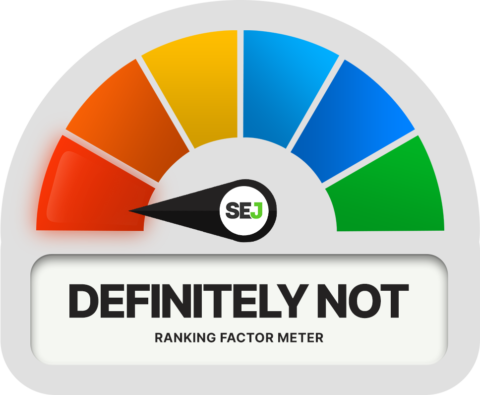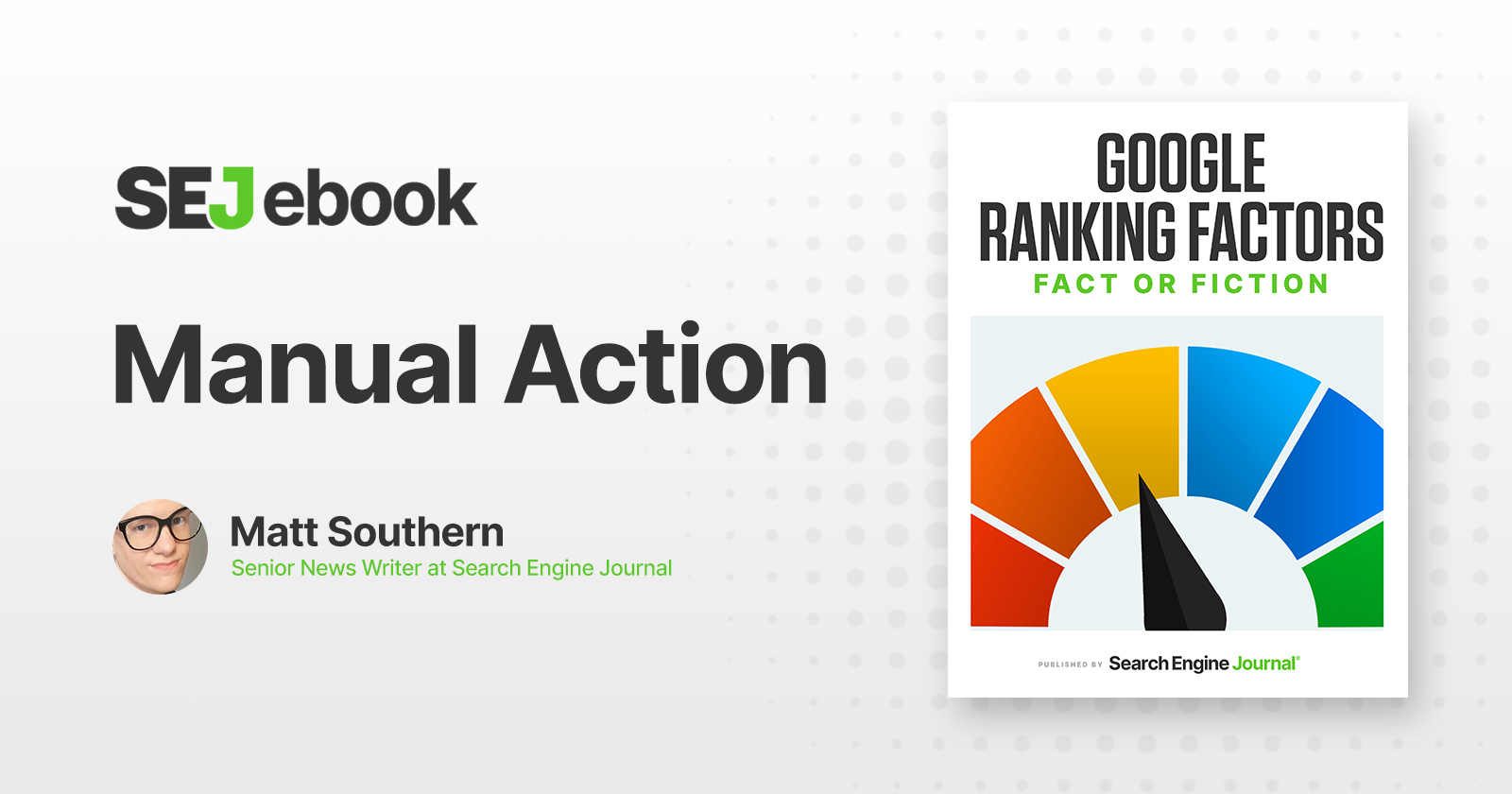A manual action can have a profound impact on a website’s appearance in Google.
It’s capable of demoting a website’s content in search results and removing content from the search index altogether.
Does that make manual actions a ranking factor?
No, not exactly.
A ranking factor is a signal Google uses to assess where and how a webpage should rank in search results.
These signals are picked up on through Google’s regular crawling of the web.
A manual action doesn’t fit that definition, because it’s something Google implements on its own.
It may be fair to say a manual action overrides all other ranking factors, as it can drop a website off the face of Google in an instant.
Google’s algorithms automatically filter out content that could cause problems in search results.
Every now and then, Google encounters an issue where it has to manually step in and take urgent action.
Here’s more about manual actions and how they impact search rankings.
The Claim: Manual Actions Are A Ranking Factor
Manual actions get lumped into the ranking factors category because the action refers to adjusting a website’s visibility in search results.
To be more specific, the action involves demoting or removing a site or specific pages from Google Search.
Calling a manual action a “ranking factor” is misleading as it creates the impression that it’s part of or at least considered by the algorithm, which it absolutely isn’t.
In fact, it’s the most serious penalty Google is able to issue to websites.
The next section has more details on the types of offenses that would cause Google to manually take action, which can help you avoid getting one of your own.
Manual Actions Are A Penalty, Not A Ranking Factor
Google has clear documentation on what manual actions are, how to know if your site has been impacted by one, and how to recover after one has been issued.
From the document:
“Google issues a manual action against a site when a human reviewer at Google has determined that pages on the site are not compliant with Google’s webmaster quality guidelines. Most manual actions address attempts to manipulate our search index.”
In addition to taking action against sites for manipulative SEO tactics, Google reserves the right to remove content if required to by law.
This is all explained in detail in a video with former Googler Matt Cutts which is as relevant today as it was when first published in 2012.
Types Of Manual Actions
Here’s a list of violations that will result in Google applying a manual action.
- Third-party spam: Site contains a significant amount of spam generated by third parties.
- User-generated spam: Site contains spam submitted by visitors.
- Structured data: Site is using structured data in a manipulative way.
- Unnatural inbound links: There’s a pattern of artificially placed links pointing to a site.
- Unnatural external links: There’s a pattern of artificially placed links pointing outward from a site.
- Thin content: Site contains low-quality pages with little or no added value.
- Cloaking & sneaky redirects: Site is showing different pages to users than are shown to Google, or redirecting users to a different page than Google saw.
- Pure spam: Site is using aggressive spam techniques and/or other repeated or egregious violations of Google’s quality guidelines.
- Cloaked images: Some of a site’s images may display differently in Google’s search results than when viewed on the site.
- Hidden text & keyword stuffing: Some of a site’s pages may contain hidden text or keyword stuffing, which are techniques not allowed by Google’s Webmaster Guidelines.
- AMP content mismatch: There is a difference in content between the AMP version and its canonical web page.
- Sneaky mobile redirect: Some pages on a site redirect mobile device users to content not available to search engine crawlers.
- News and Discover policies: Site has violated content policies for Google News and/or Discover.
How To Know If Your Site Is Impacted By A Manual Action
Unlike adjustments to search rankings that happen algorithmically, Google provides clear communication to websites when they’ve been hit with a manual action.
You may be notified in advance of the manual action getting implemented, as Google will sometimes offer an opportunity to correct the problem before issuing a penalty.
All this communication happens through Google Search Console, making it an essential SEO tool.
If and when a site is impacted by a manual action, Google will send a direct message via Search Console.
The message will have information about why the action was taken, which pages are impacted to what extent, and how to get back into Google’s good graces.
You can find more information about any manual actions against your site in the Search Console Manual Action report.
How To Recover From A Manual Action
It’s possible to recover from all manual actions, as long as the necessary steps are taken.
Google will never permanently deindex a site from its search results. Some penalties may be harder to recover from than others, but it can always be done.
Recovering from a manual action requires fixing all problems identified by Google on all offending pages. When problems are fixed, site owners have to submit a reconsideration request.
A reconsideration request is exactly what it sounds like – a request for Google to reconsider the penalty it issued against a site.
Google will review the request and reverse the manual action if it finds the issues have been resolved.
Note that a site’s rankings may not immediately go back to what they were, but nothing is holding the site back from moving up the SERPs again.
For more information about this process, see the chapter on reconsideration requests.
Manual Actions As A Ranking Factor: Our Verdict

Although a manual action results in pages or sites being ranked lower or omitted from search results, it is not technically a ranking factor.
A manual action is a Google penalty, it’s the most severe of penalties, and should be avoided at all costs.
Featured Image: Paulo Bobita/Search Engine Journal
